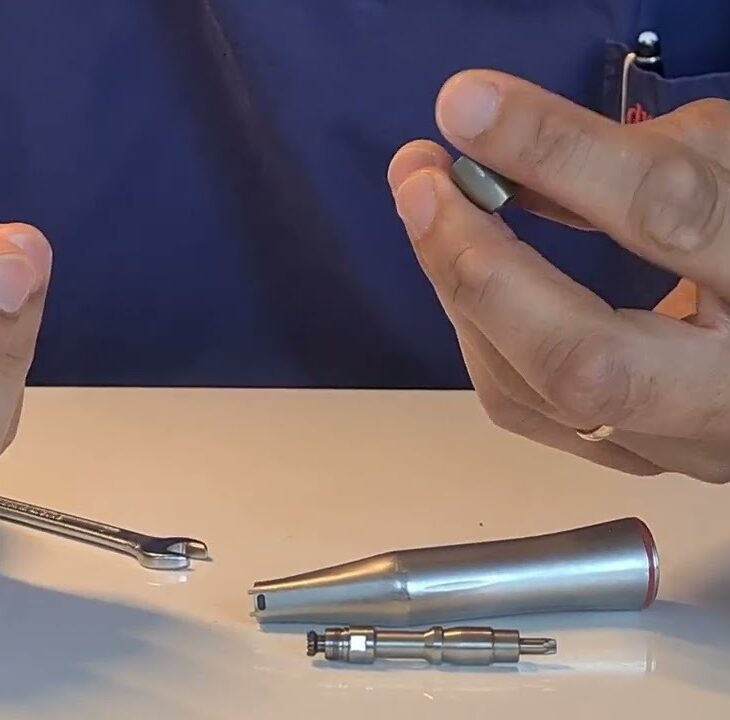Dental turbines are instruments used day by day in modern dentistry and playing a crucial role in various procedures from cavity preparation to crown fitting. Among the myriad of brands available, Kavo, Sirona, and W&H stand out as premium manufacturers, known for their high-quality, innovative, and, notably, expensive dental turbines. In this article we will discus about this hi technological device, will make intro into the features of these top-tier brands and explores the factors contributing to their high cost.
Table of Contents
ToggleOverview of Premium Dental Turbine Brands
Kavo
Kavo, a German company with over 100 years of history, is renowned for its innovative dental equipment. Their turbines are known for:
- Advanced ergonomics
- High-precision manufacturing
- Powerful performance
- Durability and longevity
Sirona
Sirona, now part of Dentsply Sirona, is another German manufacturer with a strong reputation in dental technology. Sirona turbines are recognized for:
- Integration with digital dentistry systems
- Innovative design features
- Consistent performance
- User-friendly interfaces
W&H
W&H, an Austrian company, has been producing dental instruments for over 130 years. Their turbines are praised for:
- Cutting-edge technology
- Focus on hygiene and sterilization
- Quiet operation
- Reliability and durability
Factors Contributing to High Costs
Research and Development (R&D)
One of the primary reasons for the high cost of Kavo, Sirona, and W&H turbines is the significant investment these companies make in Research and Development. These manufacturers are at the forefront of dental technology, continuously innovating to improve their products. This involves:
- Developing new materials for better durability and performance
- Enhancing ergonomics for improved user comfort
- Implementing advanced technologies like LED lighting and electronic control systems
- Optimizing aerodynamics for more efficient cooling and debris removal
The costs associated with maintaining research facilities, employing skilled engineers and designers, and conducting extensive testing are reflected in the final product price.
Precision Manufacturing
The production of high-quality dental turbines requires extremely precise manufacturing processes. Kavo, Sirona, and W&H employ:
- Advanced CNC machining for creating components with tolerances measured in microns
- High-grade materials such as surgical stainless steel and ceramic bearings
- Rigorous quality control measures, including individual testing of each turbine
- Specialized assembly techniques to ensure optimal performance and longevity
These precision manufacturing processes are costly but essential for producing turbines that meet the exacting standards of professional dentistry.
Advanced Technologies
Premium dental turbines incorporate various advanced technologies that contribute to their high cost:
- Ceramic ball bearings for reduced friction and longer lifespan
- LED lighting systems for improved visibility during procedures
- Electronic speed control and torque management systems
- Advanced spray systems for efficient cooling and debris removal
- Noise reduction technologies for improved patient comfort
Implementing these technologies requires sophisticated components and assembly processes, driving up the overall cost of the turbines.
Durability and Longevity
Kavo, Sirona, and W&H turbines are built to last. While their initial cost is high, these instruments often prove to be cost-effective in the long run due to their durability. Factors contributing to their longevity include:
- High-quality materials resistant to wear and corrosion
- Robust design capable of withstanding frequent sterilization cycles
- Serviceability, with many components designed to be replaceable
- Comprehensive warranty and support services
The use of premium materials and the implementation of design features that extend the lifespan of these turbines contribute significantly to their higher upfront cost.
Brand Reputation and Marketing
The strong reputation of Kavo, Sirona, and W&H in the dental industry also plays a role in their pricing. These brands have established themselves as leaders in dental technology, and their products are often seen as the gold standard in many dental practices. This reputation is built on:
- Consistent quality and reliability
- Excellent customer support and after-sales service
- Extensive marketing and presence at dental conferences and trade shows
- Collaborations with dental schools and opinion leaders in the field
Maintaining this premium brand image and providing comprehensive support services adds to the overall cost of their products.
Regulatory Compliance
Dental turbines are classified as medical devices and must comply with strict regulatory standards in various countries. Meeting these standards requires:
- Extensive documentation and record-keeping
- Regular audits and inspections
- Compliance with sterilization and hygiene standards
- Adherence to material safety requirements
The costs associated with meeting these regulatory requirements, including testing, certification, and ongoing compliance, contribute to the higher price of premium dental turbines.
Ergonomics and User Experience
Kavo, Sirona, and W&H invest heavily in ergonomic design to improve the user experience for dental professionals. This focus on ergonomics involves:
- Extensive research into hand positioning and movement during dental procedures
- Development of balanced and lightweight designs to reduce hand fatigue
- Implementation of textured surfaces for improved grip
- Customizable features to suit individual preferences
The emphasis on ergonomics and user comfort requires additional design considerations and often more complex manufacturing processes, further adding to the cost.
Conclusion
The high cost of dental turbines from premium brands like Kavo, Sirona, and W&H is a result of multiple factors, including significant R&D investments, precision manufacturing, advanced technologies, durability, brand reputation, regulatory compliance, and ergonomic design. While these turbines come with a hefty price tag, many dental professionals find that the quality, reliability, and longevity of these instruments justify the investment.
For dental practices, the decision to purchase premium turbines often involves weighing the higher upfront costs against the long-term benefits of improved performance, reduced downtime, and potential cost savings from durability and longevity. As with many professional tools, the value of these high-end dental turbines extends beyond their price, encompassing the quality of care they enable dentists to provide and the efficiency they bring to dental procedures.

